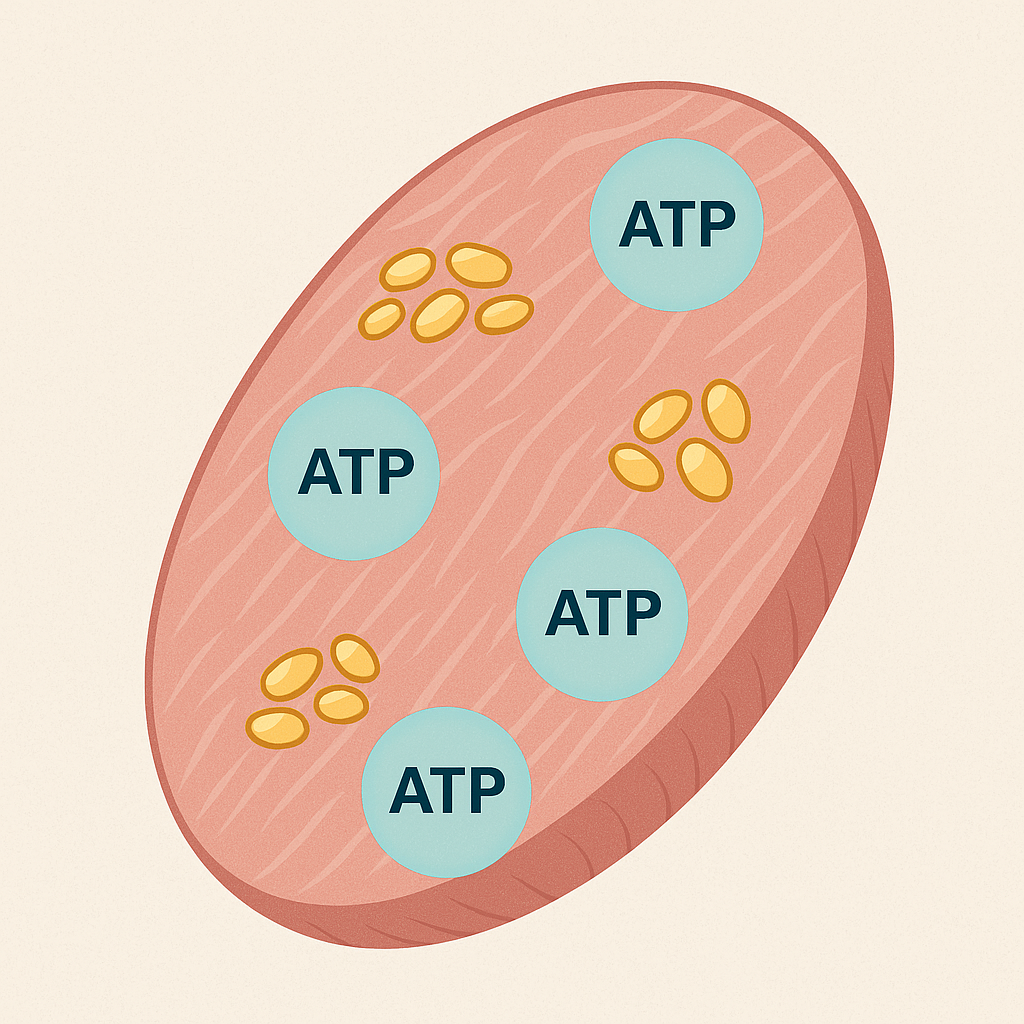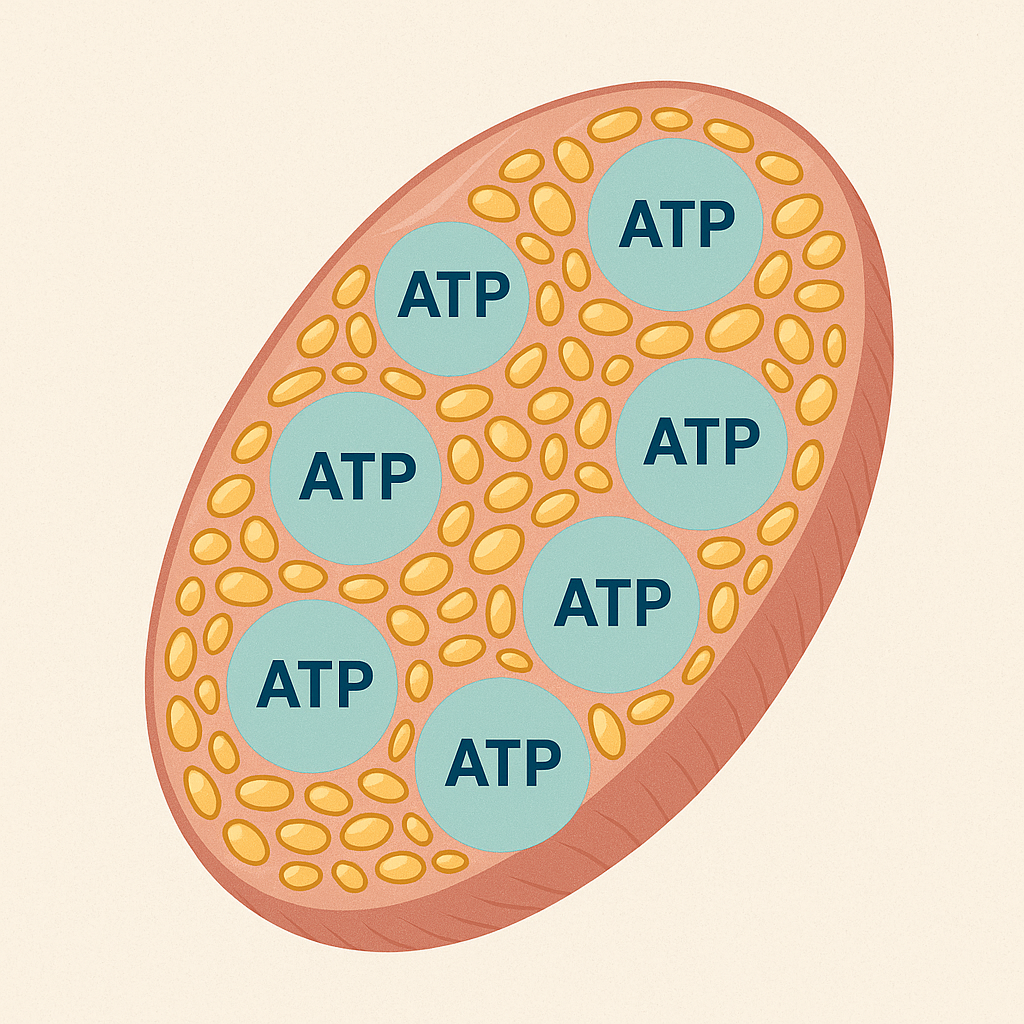
What is Creatine?
Creatine is a naturally occurring compound found in your muscles and brain. It helps your cells produce energy during high-intensity activity. While your body produces creatine, supplementing it enhances strength, supports recovery, and improves overall performance - safely and effectively.
Why Take Creatine?
Creatine is the most studied supplement in the world. Decades of research have proven its safety and effectiveness. It has been shown to:


When will I notice the effects?
Creatine is a naturally occurring compound found in your muscles and brain.
It helps your body produce more ATP, which is the main energy source of your cells.
More ATP equates to more strength, power and endurance.
Creatine works by saturating your muscle stores, which requires consistent, daily intake over 2–4 weeks.
You may not feel the benefits on day 1, but after 2 weeks many people start to feel the positive impact of our gummies.
Backed by Research. Trusted by Experts.
Creatine is one of the most studied supplements in the world. Decades of research show its safety and effectiveness.
Is creatine really backed by science?
Is creatine really backed by science?
Yes, creatine is one of the most researched supplements in the world, with over 1,000 peer-reviewed studies validating its effectiveness for both physical and cognitive performance.
Are there any other potential benefits of creatine?
Are there any other potential benefits of creatine?
Neuroprotection & Alzheimer’s Disease
- A recent 2023 study suggests creatine may help buffer brain energy metabolism, possibly delaying neurodegenerative diseases like Alzheimer’s.
- Researchers found that creatine levels were significantly lower in brains affected by Alzheimer’s, especially in regions responsible for memory.
- Creatine supplementation may reduce oxidative stress, and improve neuronal resilience.
Latest research:
Dhingra et al. (2023), Reduced creatine in the hippocampus of Alzheimer's patients.
Published in Neurobiology of Aging
ScienceDirect link
Mood, Depression & Anxiety
- Emerging studies suggest creatine may support serotonin regulation and reduce symptoms of depression, especially when used alongside antidepressants.
- The energy-boosting properties of creatine at the cellular level may contribute to mood stabilisation.
Study: Roitman et al. (2007), Creatine monohydrate in resistant depression.
PubMed
Potential in Women’s Health
- Research is also exploring creatine’s role in menstrual-related fatigue, postpartum recovery and supporting muscle preservation during perimenopause.
- Women may benefit from creatine’s brain and muscle enhancing effects at specific hormonal stages.
Is creatine safe to take daily?
Is creatine safe to take daily?
Absolutely. When taken at recommended doses, creatine is safe for long-term, daily use; even over multiple years. It is naturally found in the body and in food such as red meat, however supplementing it allows us to more easily reach optimal levels.
What kind of creatine does Atlantic use?
What kind of creatine does Atlantic use?
We use high-purity creatine monohydrate, the most studied and proven form. It is highly absorbent, effective at small doses, and trusted by experts.
Can you link me to actual research?
Can you link me to actual research?
- Creatine Supplementation and Exercise Performance
Read the study → - Creatine Supplementation in Women's Health: A Lifespan Perspective
Read the study → - The Effects of Creatine Supplementation on Cognitive Function in Adults
Read the study → - ISSN Position Stand: Safety and Efficacy of Creatine Supplementation
Read the study → - Creatine Enhances Cognitive Performance Under Sleep Deprivation
Read the study →



